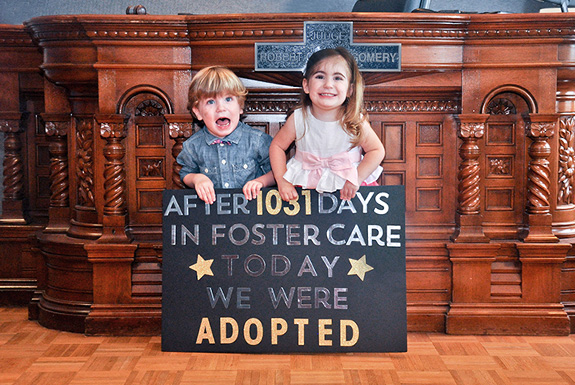
Embarking on the Journey of Adoption Through Foster Care: A Comprehensive Guide
Introduction
Adoption is a profound and life-changing experience that brings immense joy and fulfillment to both the adoptive parents and the child. While there are various pathways to adoption, foster care adoption offers a unique opportunity to provide a loving and stable home for children who have experienced adversity. This comprehensive guide will delve into the intricacies of adopting a baby through foster care, providing valuable insights and practical guidance for prospective adoptive parents.
Understanding Foster Care
Foster care is a temporary placement system designed to provide a safe and nurturing environment for children who cannot remain with their biological parents due to neglect, abuse, or other circumstances. Foster parents provide temporary care for these children, ranging from a few months to several years, while their biological parents work towards reunification or other permanent arrangements are made.
Eligibility for Foster Care Adoption
To be eligible to adopt a baby through foster care, prospective parents must meet certain requirements, which may vary slightly from state to state. Generally, these requirements include:
- Being at least 21 years of age
- Having a stable income and home environment
- Passing a background check and home study
- Completing foster care training and education programs
- Demonstrating a commitment to providing a loving and supportive home for a child
The Adoption Process
The adoption process through foster care typically involves the following steps:
1. Contacting the Foster Care Agency:
The first step is to contact the local foster care agency in your area. They will provide you with information about the adoption process and guide you through the initial steps.
2. Home Study and Background Check:
A social worker will conduct a home study to assess your suitability as adoptive parents. This includes interviews, background checks, and an evaluation of your home environment.
3. Foster Care Placement:
Once approved, you may be placed with a foster child. This is a temporary placement, and the goal is to provide a stable and loving home while the child’s case is being resolved.
4. Legal Adoption:
If the child’s biological parents’ rights are terminated, you may proceed with the legal adoption process. This involves filing a petition with the court and obtaining a final adoption decree.
The Benefits of Foster Care Adoption
Adopting a baby through foster care offers several benefits:
- Providing a loving home: You can provide a stable and nurturing environment for a child who has experienced trauma or adversity.
- Making a difference: You can make a profound impact on the life of a child by giving them a chance to thrive in a loving family.
- Expanding your family: Adoption can expand your family and bring immense joy to your life.
- Financial assistance: Foster care adoption may qualify you for financial assistance, such as adoption subsidies and medical coverage.
The Challenges of Foster Care Adoption
While foster care adoption is a rewarding experience, it also comes with challenges:
- Trauma and Attachment Issues: Foster children may have experienced trauma or neglect, which can affect their attachment and behavior.
- Legal Complexity: The legal process of adoption can be complex and time-consuming.
- Open Adoption: In some cases, foster care adoption may involve ongoing contact with the child’s biological family.
- Emotional Rollercoaster: The adoption process can be emotionally challenging, especially during the transition period.
Preparing for Foster Care Adoption
To prepare for foster care adoption, consider the following:
- Educate yourself: Learn about foster care, adoption, and the challenges and rewards involved.
- Build a support system: Surround yourself with family, friends, and professionals who can provide support and guidance.
- Seek therapy: Consider seeking therapy to address any personal or emotional issues that may impact your ability to parent a foster child.
- Be patient and understanding: Foster children may need time to adjust to their new home and family.
- Embrace diversity: Foster care adoption often involves children from diverse backgrounds. Be open to learning about and embracing different cultures and perspectives.
Conclusion
Adopting a baby through foster care is a transformative journey that requires commitment, compassion, and a willingness to embrace the challenges and rewards. By understanding the process, preparing adequately, and seeking support, prospective adoptive parents can provide a loving and stable home for a child who deserves a chance to thrive. Remember, the ultimate goal is to create a permanent and fulfilling family bond that will bring joy and purpose to both the child and the adoptive parents.
